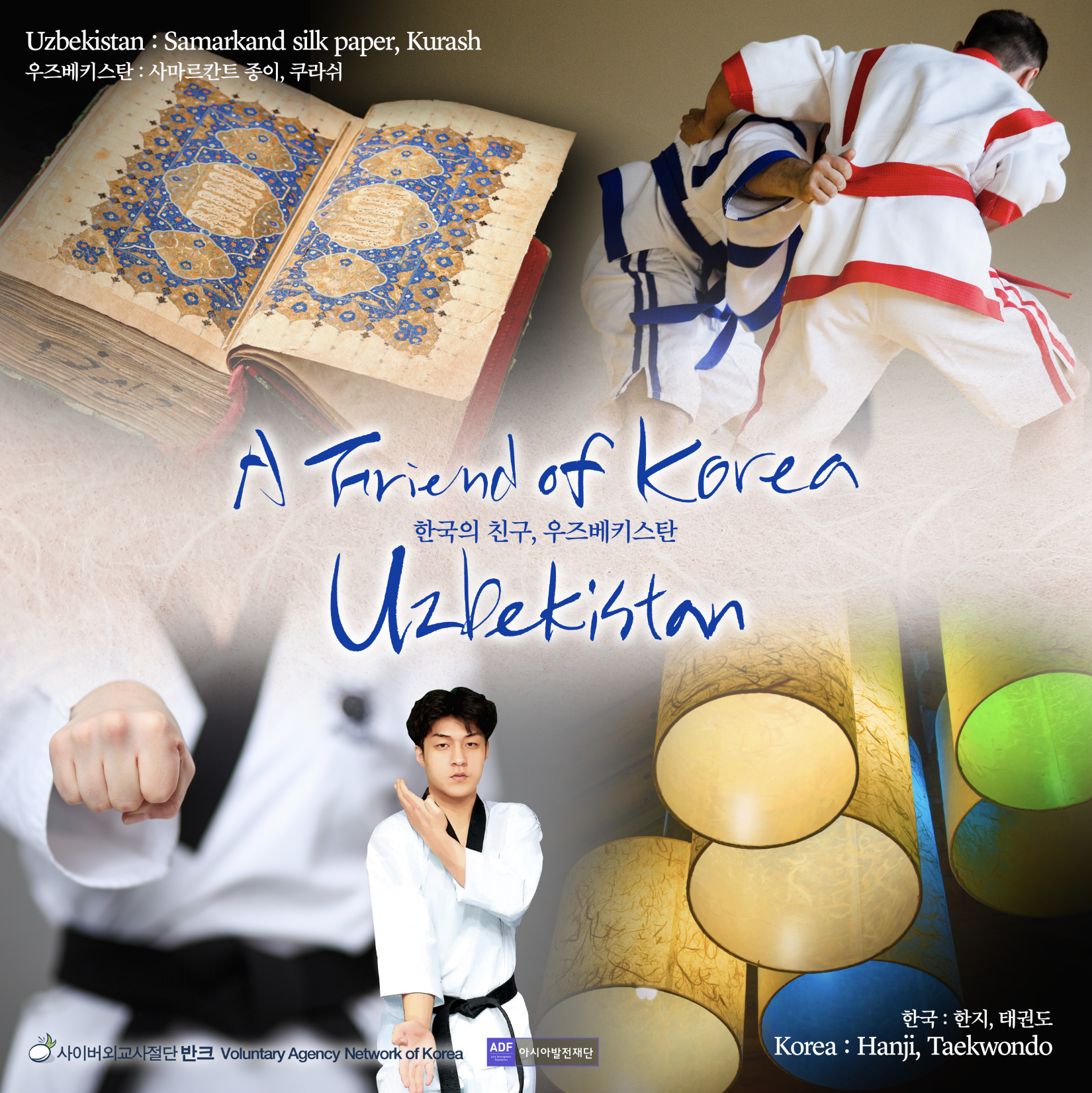Have you heard about Uzbekistan’s 1000-year-old Samarkand paper production and Hanji(Korean traditional paper)?
The Samarkand silk paper has gained global recognition and popularity for over 1000 years.
Made of mulberry tree bark, cotton, and silk, this famous paper spread across Europe, disseminating traditional Uzbek papermaking methods.
Likewise, Hanji, made with its own traditional methods, achieved global fame for centuries. Hanji was also known as hundred-paper because the user’s touch on the paper would be the 100th touch after the papermaking master’s laborious 99 touches.
Mugujeonggwang Daedaranigyeong, the world’s oldest extant woodblock print, and Jikji, the world’s oldest extant movable metal type print, have been impeccably preserved because they were printed on durable Hanji.
Uzbekistan’s national wrestling Kurash has over 3,500 years of tradition. With interest in territorial expansion and cultural prosperity, ruler Amir Timur trained his soldiers in Kurash to increase their physical and mental fitness.
The wrestler who takes his opponent down first wins, which is the same in Korean wrestling called Ssireum. In Kurash, two wrestlers wear green or blue uniforms called Yakhtak, white trousers, and a red belt.
Like Uzbeks being proud of Kurash, Koreans are proud of Taekwondo, Korea’s traditional martial art. Taekwondo, which developed over Korea’s five thousand years of history, has become a global sport. It emphasizes not only physical and mental training but also respect for each other.
Like Kurash being adopted by the Asian Games in 2018, Taekwondo was adopted by the Olympic Games as an official sport in 2000. Through Kurash and Taekwondo, people across the world unite as one across languages, races, history, and culture.




